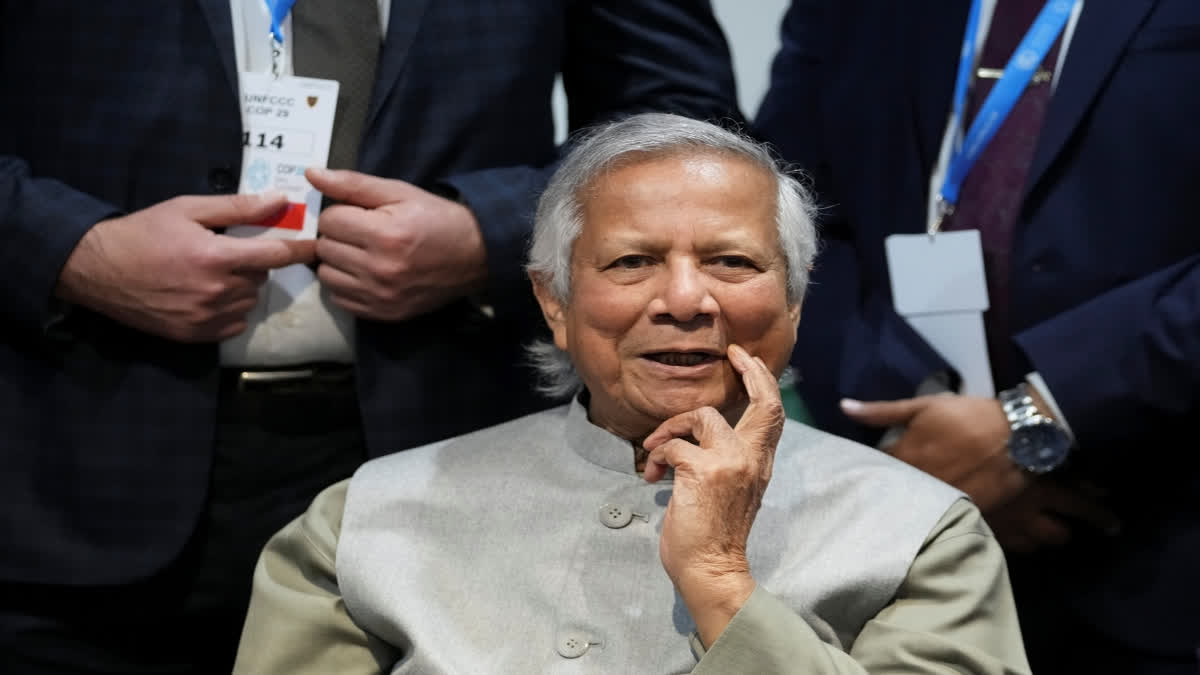Bangladesh—a nation of 173 million people is at a historic turning point. It's undergone a revolution and now looking at reforms- economic, social and political. Bangladesh is attempting to balance itself precariously between democracy and chaos.
Bangladesh is in the midst of a serious political upheaval, economic fragility. A complex interplay of domestic and international forces—from India and China to the United States are at display.
The Overthrow and Aftermath
August 5th, 2024, will go down in Bangladesh’s history as a pivotal moment. A student-led protests erupted alleging autocratic rule by Sheikh Hasina. It was fueled by frustrations over corruption, political violence, and systemic injustice. Hasina ordered the police to fire on protesters. Chaos ensued: Police stations were abandoned, and violence spiralled. Facing overwhelming resistance, Sheikh Hasina fled to India, leaving Bangladesh in a state of political vacuum.
Muhammad Yunus— known for his pioneering work in microfinance and as a Nobel Peace Prize laureate was prodded into the role of a caretaker leader. He promised stability and a 'new Bangladesh’ without corruption and build the foundations for fair elections soon. This was no ordinary transition of power. Yunus's government lacks any constitutional legitimacy: Sheikh Hasina had scrapped the provision for interim governments back in 2011. His authority rests solely on his popularity and moral standing. This is a fragile foundation for a nation grappling with its deepest divides.
Challenges of Governance
It is to the credit of Mr Yunus that he managed to stabilise the situation somewhat. Security forces have returned to their posts, remittances— a crucial 5% of GDP — have rebounded, and exports of readymade garments surged by 21% year-on-year in October. But the road ahead is treacherous.
Food inflation remains a staggering 13%, electricity supply is precarious — exacerbated by payment disputes with India's Adani Group — and severe flooding has hurt rice production. Yunus’s cabinet of 24 advisers, many of whom are young and inexperienced, pales in comparison to the 36-member team under Sheikh Hasina. Yunus himself has been juggling multiple portfolios, including defense, public administration, and food, but his lack of governing experience is becoming evident.
Meanwhile, the demands from his supporters grow louder. The students who led the revolution want radical reforms, including banning the Awami League (AL) and prosecuting Sheikh Hasina for alleged crimes against humanity. On the other hand, the Bangladesh Nationalist Party (BNP)—the AL's long-standing rival—wants elections as soon as possible. The BNP is aware of its precarious position, as it too faces allegations of abuses during its time in power. Its leader, Mirza Fakhrul Islam Alamgir, has called for elections by June 2025, with the threat of mass protests looming.
The International Dimension
Bangladesh’s political turmoil is not happening in isolation. Its strategic location places it at the center of regional and global rivalries. India, has significant stakes in Bangladesh's stability. During Sheikh Hasina's tenure, India forged close ties with Dhaka, particularly in areas like energy and counterterrorism. However, Modi's government is now watching warily, fearing a resurgence of Islamist forces under Yunus's interim rule.
The Adani Group controversy adds another layer of complexity. Bangladesh depends on India for about 10% of its electricity. Disputes over payment arrears have already led to reduced power supplies. Yunus has pledged to address these issues. Tensions over cross-border water sharing and Hasina's sanctuary in India remain unresolved.
Meanwhile, the United States, under second Trump presidency, introduces another challenge. Trump’s skepticism of foreign aid and climate action could impact the nearly $1.2 billion pledged by America. Bangladesh is also negotiating for additional loans and grants with China. Mr Yunus must navigate this delicate balance. Beijing has already promised $2 billion, with discussions underway for $5 billion more. The risk of falling into a debt trap, however, looms large.
The Risk of a Backslide
Revolutions often falter when initial optimism gives way to political gridlock. This is the risk Yunus now faces. If he caves to demands for premature elections, the structural reforms he envisions — such as fixing the judicial system and ensuring free and fair elections — may never materialise. A flawed election could see power swing back to the AL or the BNP, perpetuating the cycle of oligarchic, thuggish governance.
